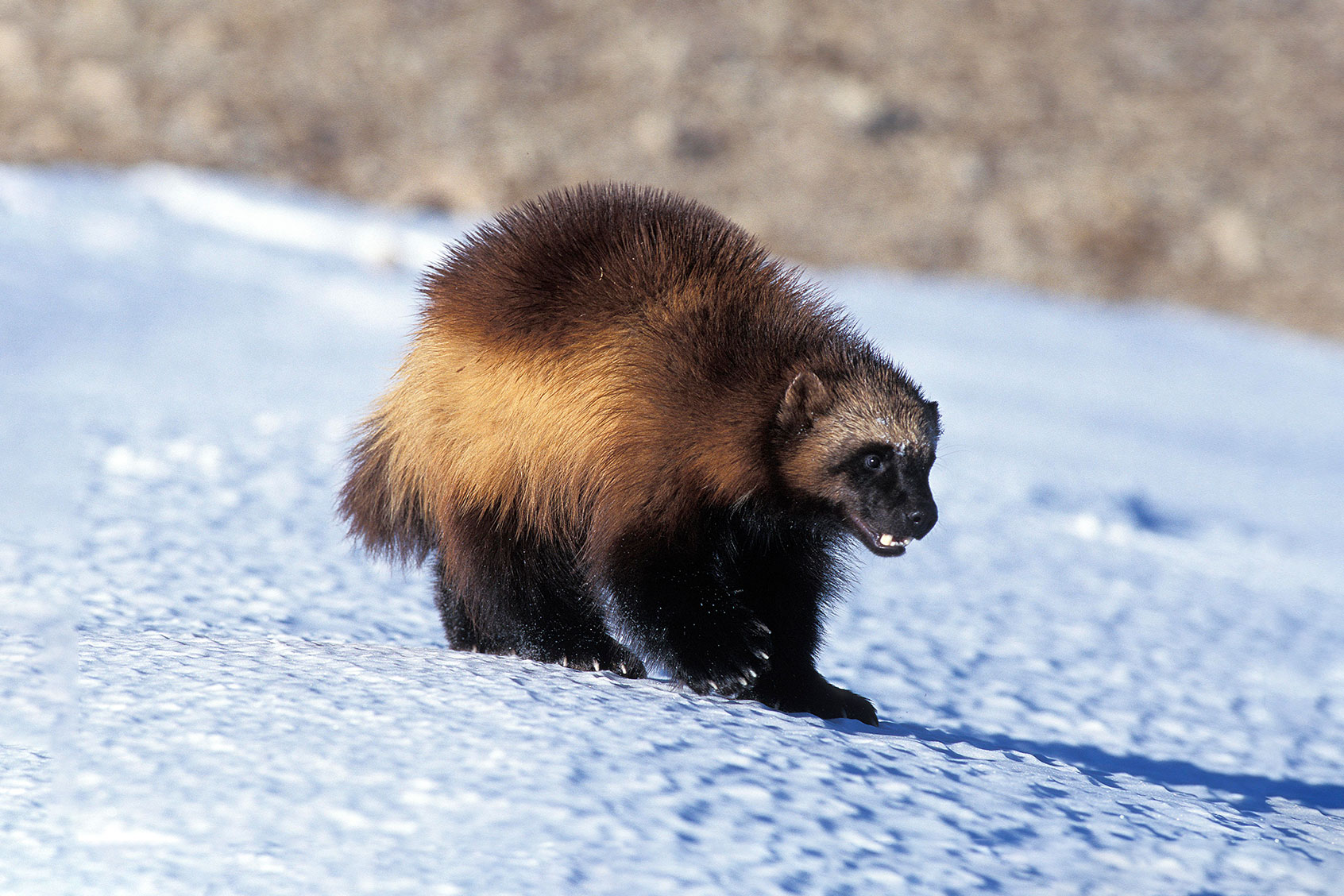Scientists have known for years that wolverines are threatened by climate change. They usually reside in Arctic and subarctic latitudes — and, when venturing south, they stick to high altitudes — because they rely on snowfall to survive. Female wolverines will only dig dens for their kits in the snow, and their bodies are acclimated to snowy environments.
However, as humans continue to burn fossil fuels and overheat the planet, climate change continues reducing snow in the regions where wild wolverines reside. Now there seems to be a bit of good news for the so-called "skunk bear": North American wolverines in the contiguous United States are being officially listed as "threatened" under the Endangered Species Act by President Biden's U.S. Fish and Wildlife Service (FWS).
“Current and increasing impacts of climate change and associated habitat degradation and fragmentation are imperiling the North American wolverine,” Pacific Regional Director Hugh Morrison said in a statement. “Based on the best available science, this listing determination will help to stem the long-term impact and enhance the viability of wolverines in the contiguous United States.”
Today there are believed to be roughly 300 North American wolverines left in the contiguous United States, and they were almost entirely wiped out a century ago thanks to "unregulated trapping and poisoning campaigns," according to AP News. Although the FWS proposed listing North American wolverines as "threatened" as far back as 2013, President Trump's administration reversed that decision in 2020 by arguing it was not warranted. North American wolverines were not considered again for protection until the Trump administration ruling was reversed by the District Court of Montana in 2022.

